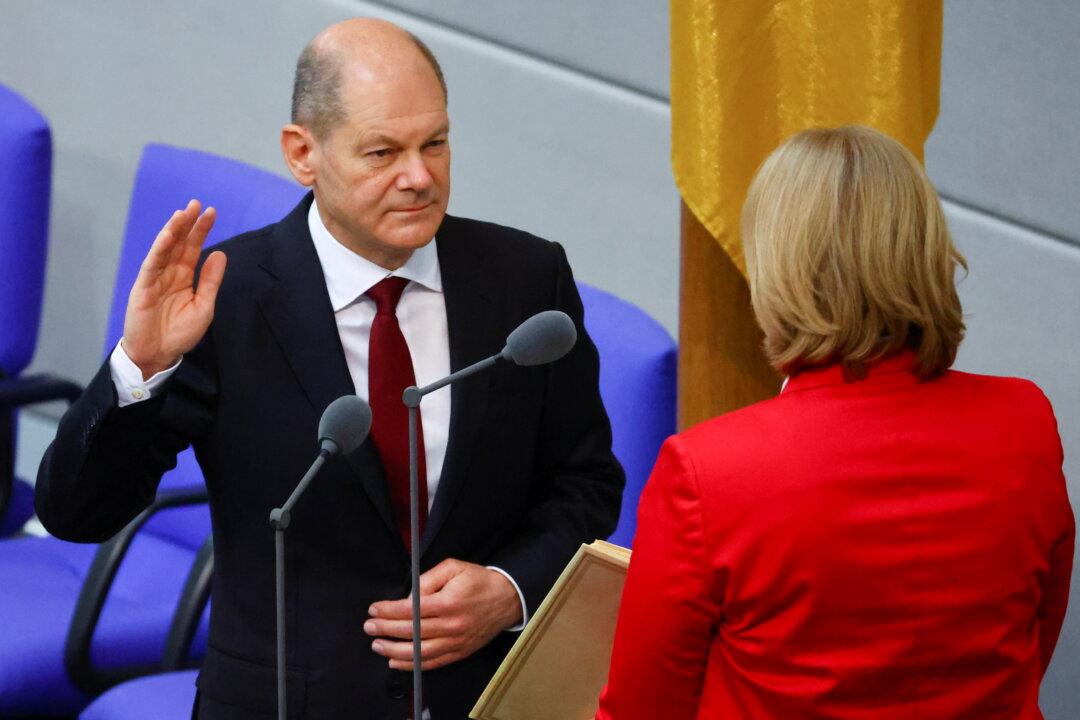BERLIN—Social Democrat Olaf Scholz became Germany’s chancellor on Wednesday, ending 16 years of conservative rule under Angela Merkel and launching his three-way coalition that has pledged to boost green investment and strengthen European integration.
Scholz, 63, who over the past four years served as vice chancellor and finance minister in coalition with Merkel, won a majority of 395 votes from lawmakers in the lower house of parliament, Bundestag President Baerbel Bas said.





